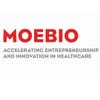Vanessa Gurie: “The real opportunity lies in truly listening to the needs of the patient”
With a scientific background and an MBA, Vanessa Gurie joined d·HEALTH Barcelona after 10 years leading the global Performance Medicine Touring Division for the Cirque du Soleil in 48 countries. After her clinical immersion at Hospital Clínic in 2017, Vanessa founded I-Ophthalmology, which uses digital health technology to connect remote patients with ophthalmologists. She has also been accepted to participate in the MIT Global Sustainability and Entrepreneurship Bootcamp in Brisbane and pre selected for the EIT Health Wild Card initiative.
Why did you decide to join d·HEALTH Barcelona?
I was inspired to join the d·HEALTH program particularly with wanting to gain an understanding and application of the process of biodesign. I was interested to be introduced to the world of medical and digital technology, the entrepreneurial journey, the understanding of innovating from the needs of the patient and validation through primary market research and the use of design thinking through all phases of innovation.
You had been working for Cirque du Soleil before joining the program. Why did you decided to make such a big change in your career?
In December 2016, I made a personal decision to leverage my skills from performance medicine in sport and follow my true passion to make a direct impact and mark on global health.
How has d·HEALTH changed your vision of the life sciences sector?
One of the most surprising things I have learned has been how challenging it is to identify compelling, unique, and insightful clinical needs. I have discovered that these insights come from intense questioning and true immersion into a clinical need. I did not anticipate that this experience would give me a new perspective, would challenge my medical knowledge, allow me to question my assumptions, and ultimately would change how I view ophthalmic medicine.
Which are the best “lessons learned” you achieved during the program?
A compelling learning was the process of striking just the right balance between various aspects of bringing a product to market: in selecting a need/concept pair, the tradeoffs between technical risks, market size, clinical/regulatory timelines, reimbursement, and the delivery care models. It can seem overwhelming. Each need ends up developing a unique signature and ultimately figuring out where to draw the line –making efficient decisions with available information and in a team with four unique perspectives– has been one of my most valuable learnings.
The program has also taught me that in the face of uncertainty and adversity to remain disciplined, focused, resilient and know the real opportunity lies in truly listening to the needs of the patient.
How did your team decided to found I-Ophthalmology and which is the current status of the project?
Our team formulated I-Ophthalmology by looking at the most compelling need in ophthalmology, which is long wait for patients to see ophthalmologists due to a global shortage of ophthalmologists. Now we have two new founders and are now in the development phase of the technology.
Which are your short and long-term professional goals regarding I-Ophtalmology?
In short term, to be able to achieve ‘go to market status’. In long term, the main goal is that I-Ophthalmology makes a global impact to give all patients access to eye care when they need it.
Willing to follow Vanessa’s steps? Join us!
Biocat has open the selection for students of its sixth Design Health Barcelona (d·HEALTH Barcelona) edition, a postgraduate program to develop innovators and entrepreneurs in the healthcare sector, with starting date in January, 2019. The 90% of the previous editions participants have found a job in the healthcare sector and 48% of them started their own business project.
Following the Stanford biodesign methodology, participants experience a full cycle of innovation. The fellows divide into multidisciplinary teams with graduates in science, design, engineering and business, and do a two-month clinical immersion in top hospitals in Barcelona to detect real unmet clinical needs on site that can be the basis for creating new products or services.
Throughout the program, participants experience a full innovation cycle, from identifying the business idea to designing and prototyping a viable solution and searching for funding. At the same time, they take on valuable knowledge in medicine, business development, design thinking and creative leadership skills from over 70 international professors from Stanford, Kaos Pilot and companies in Silicon Valley, among others.
More information about Design Health Barcelona (d·HEALTH Barcelona).
